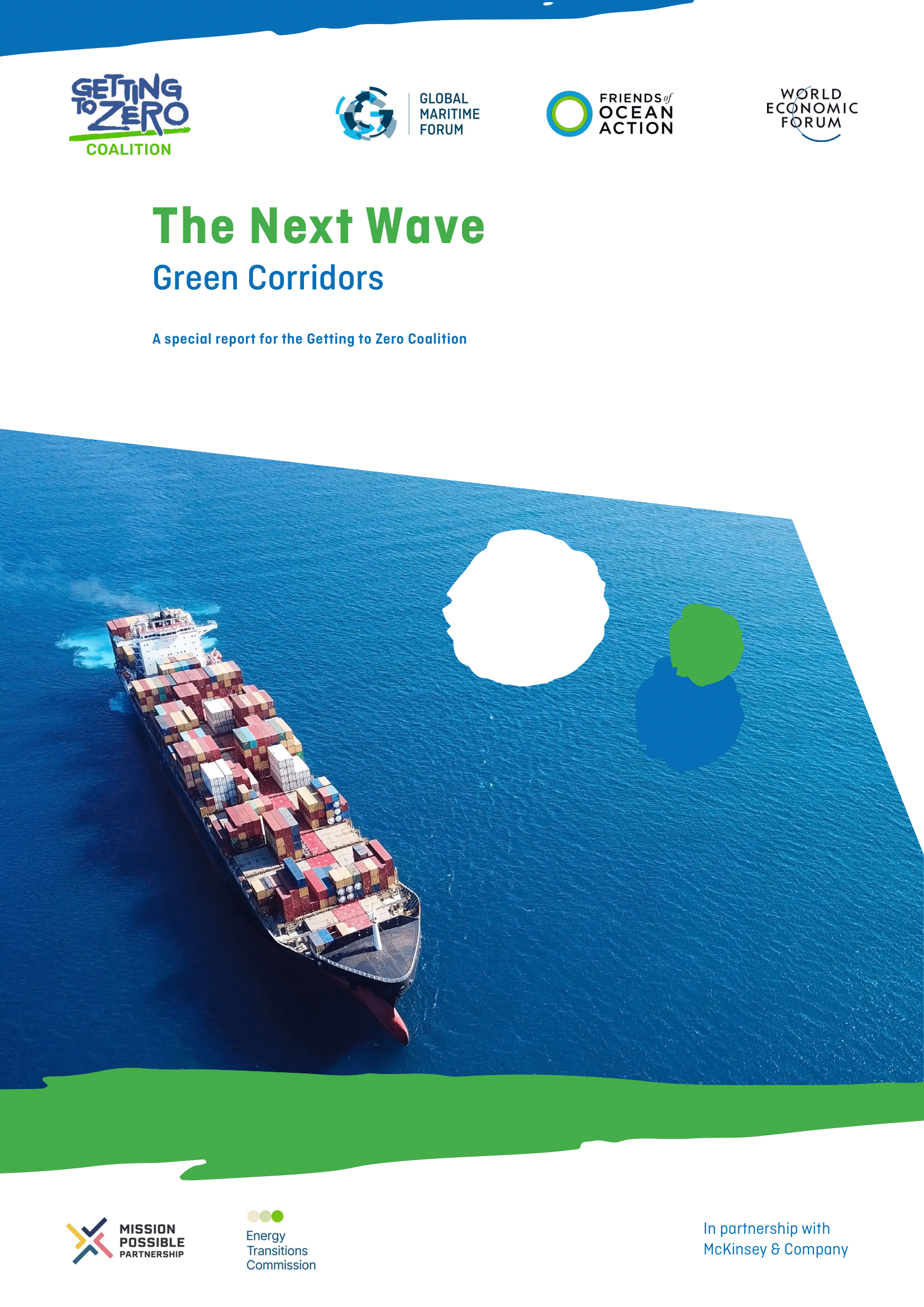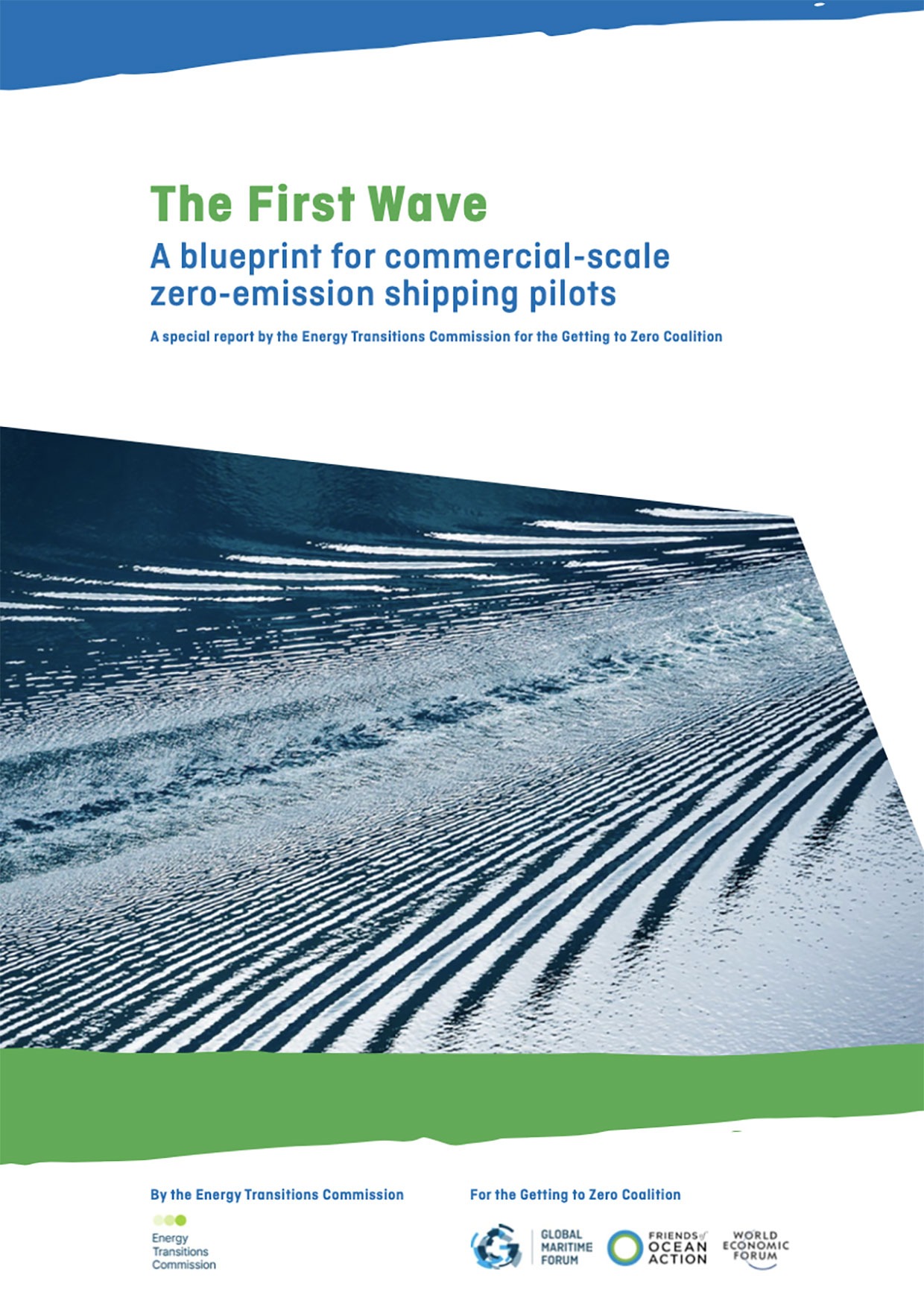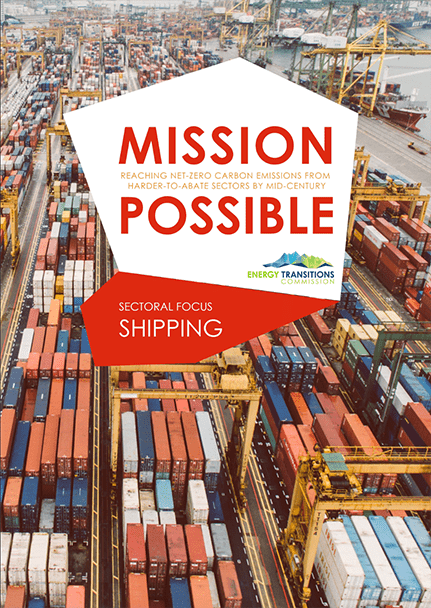The Next Wave: Green Corridors
November 2021
In 2020, the Getting to Zero Coalition – a partnership between the Global Maritime Forum, Friends of Ocean Action and World Economic Forum – and the Energy Transitions Commission outlined the business case for a commercial-scale zero-emission pilot in The First Wave: A Blueprint for Zero-Emission Shipping. In 2021, it is already clear that it is necessary to raise ambitions to more than pilots.
This new study, The Next Wave: Green Corridors, looks at how green corridors – specific trade routes between major port hubs where zero-emission solutions are demonstrated and supported – can be conceived, prioritized, and designed to accelerate the speed of shipping’s transition.
The study shows that green corridors can leverage favourable conditions for accelerated industry action and allow policy makers to create an enabling ecosystem with targeted regulatory measures, financial incentives, and safety regulations. In these contexts, the mutually reinforcing actions needed from industry and policymakers to decarbonize shipping become more straightforward, creating end-to-end solutions that can be replicated globally.
On all green corridors, the success factors are likely be similar: corridor-level consensus on fuel pathways, policy support to help close the cost-gap for higher-cost zero-emission fuels, and value-chain initiatives to pool demand. Aligning on a corridor-specific decarbonisation roadmap based on these factors could provide all stakeholders with the confidence that is needed to invest, co-ordinate, and deliver the solutions at scale required by 2030.
The ‘The Next Wave: Green Corridors’ report was undertaken at the initiative of the Getting to Zero Coalition’s Motivating First Movers workstream. The Global Maritime Forum and Mission Possible Partnership, with analysis from the Energy Transitions Commission and McKinsey & Company, have worked together to deliver this final report.





